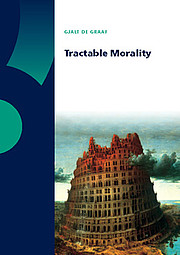Tractable Morality: Customer Discourses of Bankers, Veterinarians and Charity Workers Defended on Friday, 12 December 2003
Ethical problems continually confront managers in the workplace, but how do they know what the “right” thing to do is? A manager’s world is more complicated than choosing between “doing well” and “doing good.” It is difficult enough to identify the ethical dimensions of their decisions in the first place, let alone consider the consequences of the various actions that might follow. Nor are scholars certain of how to research ethics within organizations. What terms and concepts are most useful? This thesis studies discourse theory to help both managers and academicians. Within discourse theory, language is seen as constitutive of reality. This has consequences for business ethics because, after all, how we look at the world and perceive facts determines how we value. The book’s three empirical studies of customer discourses of bankers, veterinarians and charity workers pose some intriguing questions while framing the discourse analyses. Does the Rabobank treat its customers the same way as its competitors? Do fundraisers and managers of charities define “customer” differently? How do veterinarians deal with conflicts of interest between animals and animal owners? The answers lie within.
Keywords
Business Ethics, Moral Theories, Moral Decisions in organizations, Code of Conduct, Discourse Theory, Discourse Analysis, Metaphors, Study Lines, Descriptive prescriptive, Conceptualizations, banker, veterinarian, Charity, Managerial customer relations, symmetry principle, intractable morality







